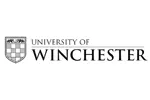About PGCE Secondary Religious Education, PGCE - at University of Winchester
The Postgraduate Certificate in Education (PGCE) in Secondary Religious Education is an innovative, flexible programme aimed at prospective Religious Education (RE) teachers who cannot, or do not wish to, follow a conventional full-time teaching programme.
Entry requirements: Honours degree in a relevant subject or a degree of any subject with evidence of study in religion(s) plus GCSE passes (or equivalent) at Grade C or above in English Language and Mathematics
If English is not your first language: IELTS 6.5 (including 6.5 in academic writing) or a TOEFL score of 575 (paper-based) or 232 (computer-based) or equivalent
Application process: Applicants should apply direct to the University by completing the Direct Entry Application Form
All applicants need to complete a Criminal Records Bureau (CRB) and health declaration
Programme ContentThe programme is based on an individual training plan for individuals and is distinctive in its combination of flexible study patterns, age range options and Masters level opportunities.
The University of Winchester is based on an Anglican Foundation and combines a tradition of high quality provision in theology and religious studies with a national reputation for initial teacher education.
Programme contentIt is designed to give students the theoretical knowledge and professional skills to teach RE in the secondary school. Flexibility is its key feature. Students may prepare to teach the 11-16 or 11-18 age ranges. They also have opportunities to gain Masters level credit for some modules, these include Professional Studies, Teaching Religious Education (1) and Teaching Religious Education (2).
The programme consists of an initial needs analysis followed by seven modules, four University-based and three school-based. The initial needs analysis includes time in school and can lead to exemption from some modules, normally school-based time, on the basis of prior experience. All seven modules have to be completed.
During the University-based modules, students develop understanding of both the theory and practice of teaching RE using a range of learning and teaching approaches. In school-based modules, students are supported in developing practical classroom skills both in teaching RE and in the teacher’s wider professional role.
The timescale within which the programme is completed is agreed as part of the initial needs analysis.
ModulesModules include: Religious Education – the Subject explores the nature of RE today and how it has evolved into its present form. It considers the place of RE in the secondary school and the range of content that is found in agreed and examination syllabuses.
Teaching Religious Education (1) introduces students to theoretical and practical approaches to teaching RE. It includes lesson planning, learning and teaching strategies and assessment, together with an introduction to other key teaching tools such as ICT (Information and Communication Technology).
Teaching Religious Education (2) develops the issues introduced in the previous module. It introduces students to a wider range of teaching and learning approaches and broadens knowledge and experience through topics such as RE and citizenship. It also considers RE in the primary and post-16 phases.
Professional Studies considers a wider range of professional issues that are important for all teachers, irrespective of subject specialism. Themes include classroom management, safeguarding of children, special educational needs, working with other adults, pastoral care, inclusion and equal opportunities.
School Experience (1) gives students the opportunity to begin to develop their teaching skills in a secondary school that will support them in working from small groups to whole class teaching, over a period of six weeks.
Self-directed School Experience enables students to follow areas of particular interest over a period of six weeks in a school or other relevant setting. It is designed to be flexible, and students are guided in their selection of an appropriate placement. Time can be spent in more than one setting, for example one week in further education combined with two weeks in a special school.
School Experience (2) involves a 10 week placement at the end of the programme. Students are expected to demonstrate that they meet the requirements for the award of Qualified Teacher Status (QTS). It involves substantial subject teaching, together with ongoing training in both subject and generic issues, supported in the school by a professional tutor and a subject mentor.
AssessmentAssessment is through school placements and portfolios of evidence built up by students over the course. The four University-based modules are assessed through a range of methods.
CareersThe PGCE leads to a recommendation for Qualified Teacher Status (QTS).


